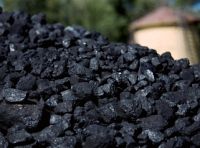

After a large number of protests, the highly polluting method of gas extraction through underground coal gasification (UCG) will not be supported by the UK government.
This method, which incorporates producing fuel from igniting underground layers of carbon and extracting the gaseous air to the surface has been argued as very harmful due to massive groundwater contamination and carbon emissions. The impacts on the environment, such as water and air pollution have been observed in Australia, have now been evaluated by Atkins, where it has been found, that the global warming potential of gas obtained through UCG method is from 40 to 100% higher than using the natural gas.
Based on the findings of Atkins report, the Department for Business, Energy and Industrial Strategy (BEIS) decided not to support this technique of fuel extraction over the adverse effects it has on the environment. The decision follows the Scottish ban on UCG in October earlier this year.
An energy analyst at the ECIU thinktank, Jonathan Marshall said "UCG was a bit of non - starter in the UK. It was not a suitable technology to provide power for replacing the coal power that is going offline, as the emissions were too high and it was too expensive".
The energy company that hoped to extract gas from the underground coal reserves - Cluff Natural Resources, after the ban on UCG, shifted away from this method and transformed the business to exploration and extraction of conventional gas and oil in the North Sea.